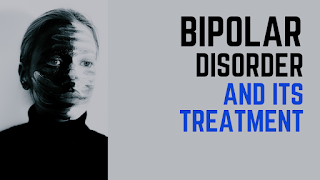Bipolar disorder is a mental illness that is characterized by dramatic shifts in mood, energy, and activity levels. People with bipolar disorder may experience episodes of mania, depression, or a mix of both. These mood swings can have a significant impact on a person's life, affecting their relationships, work, and overall well-being. However, with proper treatment, people with bipolar disorder can manage their symptoms and lead fulfilling lives.
Symptoms of Bipolar Disorder
The symptoms of bipolar disorder can vary from person to person, but typically include periods of mania and depression. Mania is characterized by excessive energy, irritability, and impulsive behavior. People in a manic episode may feel euphoric, have racing thoughts, and engage in risky behavior. On the other hand, depression is characterized by feelings of sadness, hopelessness, and loss of interest in activities.
Causes of Bipolar Disorder
The exact cause of bipolar disorder is not known, but it is believed to be a combination of genetic, biological, and environmental factors. People with a family history of bipolar disorder are more likely to develop the condition, and imbalances in neurotransmitters such as dopamine and serotonin may also play a role. Stressful life events, such as the death of a loved one or financial problems, can trigger episodes of mania or depression.
Treatment of Bipolar Disorder
Treatment for bipolar disorder typically involves a combination of medications and therapy. Medications used to treat bipolar disorder include mood stabilizers, antipsychotics, and anticonvulsants. These medications can help to stabilize mood swings and prevent future episodes. Therapy can also be an important part of treatment, as it can help people with bipolar disorder manage their symptoms and improve their coping skills. Common forms of therapy include cognitive behavioral therapy (CBT), family-focused therapy, and psychoeducation.
Lifestyle Changes
In addition to medications and therapy, making lifestyle changes can also help people with bipolar disorder manage their symptoms. Some helpful lifestyle changes include:
- Maintaining a regular sleep schedule
- Eating a balanced diet
- Engaging in regular physical activity
- Avoiding alcohol and drugs
- Reducing stress through activities such as yoga or meditation
Support
Having a strong support system can also be important for people with bipolar disorder. Family and friends can provide emotional support and encouragement, while support groups can offer a sense of community and understanding. It's also important to have open communication with healthcare providers to ensure that treatment is tailored to meet individual needs.
Conclusion
In conclusion, bipolar disorder is a treatable condition. With the right combination of medications, therapy, lifestyle changes, and support, people with bipolar disorder can successfully manage their symptoms and lead fulfilling lives. If you or someone you know is struggling with bipolar disorder, it's important to seek help from a mental health professional.



0 Comments